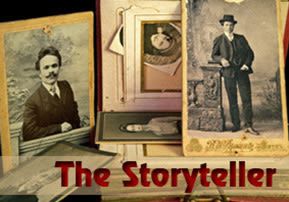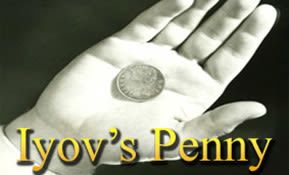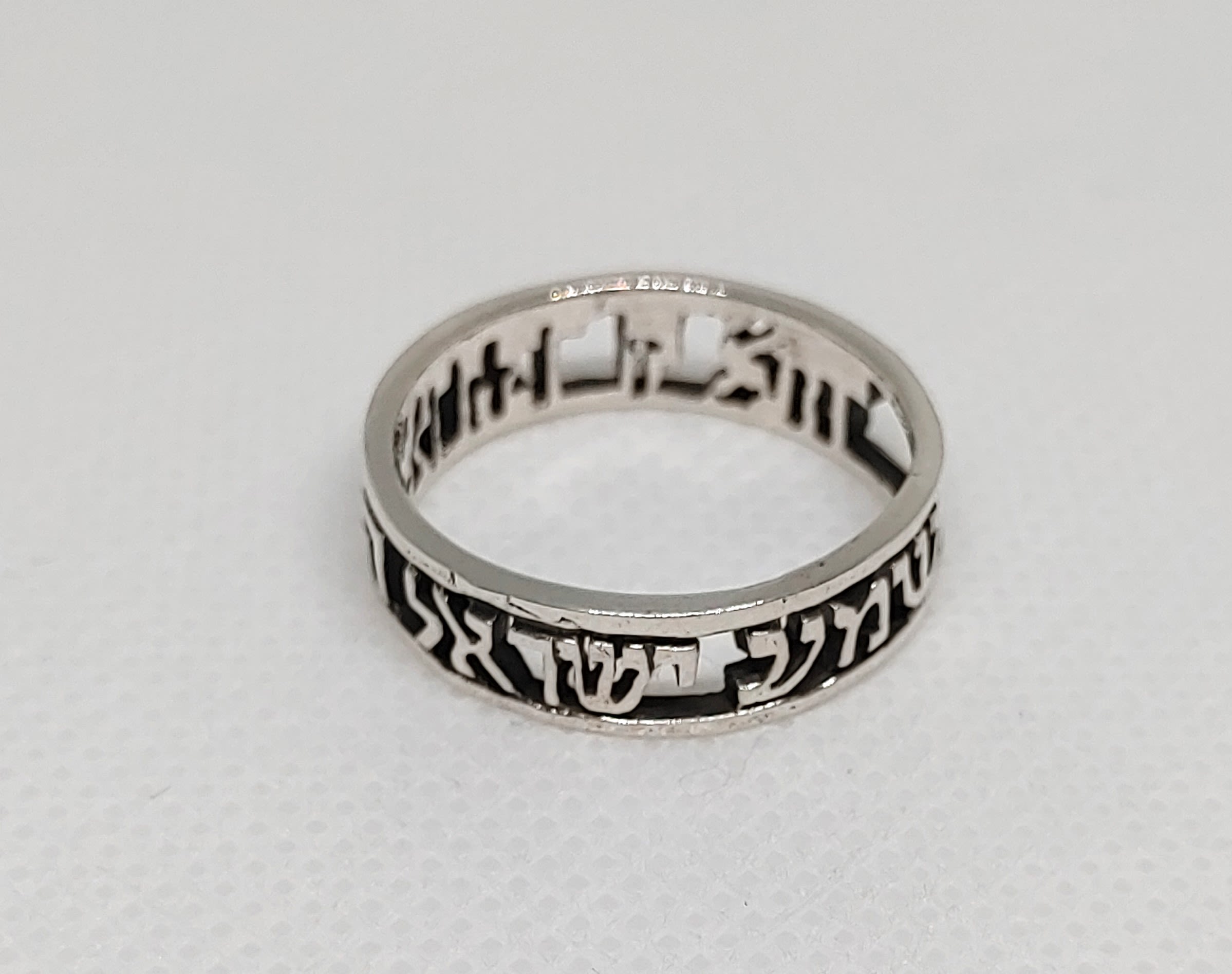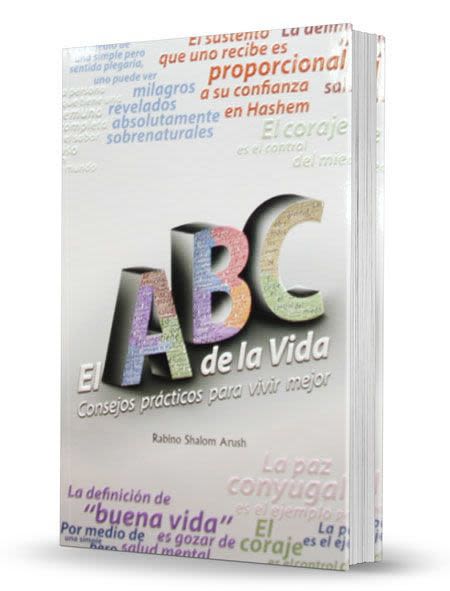
Zot HaBracha: The Storyteller
After several years of wandering, Reb Yaakov heard of a nobleman in a distant Italian city who lived to hear Baal Shem Tov stories...

Parshat Vezot HaBerachah
After several years of wandering, Reb Yaakov heard of a nobleman in a distant Italian city who lived to hear Baal Shem Tov stories. In fact, the rumor had it, "He gives a gold ducat for every story that he is told."
"And this is the blessing that Moshe (Moses), the man of God bestowed upon the Children of Israel before his death" (Devarim, 33:1).
* * *
On the day of his passing to the next world, Rabbi Yisrael Ben Eliezer (the Holy Baal Shem Tov) called his close followers, and instructed each of them as to their future.
Some he sent to other masters, some to be Rabbis in other towns, and some to return home. Finally he called Reb Yaakov and said, "After my passing, you must travel from place to place, and wherever you go, repeat my words, and tell the deeds that I did in my life-time."
Reb Yaakov felt concerned. "But Rebbe, why have you given me a life of wandering and poverty?" he asked. The Baal Shem Tov replied, "You will be warmly welcomed and richly rewarded for speaking of me. And when the time comes for your traveling to end, you will be given a clear sign."
After the Baal Shem Tov passed on to the next world, each of his disciples followed his instructions. Reb Yaakov put a few belongings in a backpack and began to travel throughout Poland. In every inn and little shul where he went, people welcomed him and gathered about to hear his inspiring stories of the Baal Shem Tov.
In the inns, he was given food and lodging and in the synagogues money was collected for him. And so as the Baal Shem Tov had predicted, he was constantly making new friends and always had enough money.
After several years of wandering, Reb Yaakov heard of a nobleman in a distant Italian city who lived to hear Baal Shem Tov stories. In fact, the rumor had it, "He gives a gold ducat for every story that he is told."
"Oh my God," thought Reb Yaakov, "I know a million Baal Shem Tov stories. I'll be a rich man."
So Reb Yaakov began the long journey to Italy. For weeks he traveled by foot and carriage. Throughout the trip, he went over all the Baal Shem Tov stories he could remember, and all the sayings that he had heard directly from his Rebbe, Rabbi Yisrael Baal Shem Tov.
Finally, after a long, arduous journey, he arrived in the Italian city where the nobleman lived. He immediately asked if anyone knew the nobleman. "Oh sure," he was told, "He lives there in that castle on the hill."
Reb Yaakov made his way to the castle and introduced himself to the servants. When it became known that he had come to tell Baal Shem Tov stories, the nobleman rushed out to greet him. He was invited into the castle as an honored guest. "Please rest here from your journey. Tomorrow on the Shabbat, when we are seated around the Shabbat table, you can tell us a few Baal Shem Tov stories" said the Baron.
Reb Yaakov couldn't believe the luxury of the castle. Wherever he turned, servants were there to attend to his every need. "Why does such a rich man want so much to hear stories about Rabbi Yisrael?" he wondered.
At the shul on Friday night, Reb Yaakov was introduced as a close follower of the Baal Shem Tov. All the congregants were very excited to meet him. After services, they all accompanied him to the Baron's castle to join in the Shabbat meal. The congregants were seated about a long table in a great banquet hall. At the head of the table sat the Baron and next to him sat the honored guest, Reb Yaakov.
After several courses were served, the Baron asked Reb Yaakov, "Did you ever see the Baal Shem Tov?"
"I saw him every day," answered Reb Yaakov, "he was my teacher."
"Tell me," said the Baron, "what did he look like?"
Reb Yaakov tried to form an image of his Rebbe, the Baal Shem Tov, in his mind. But strangely, he could not conjure up an image of him. So he said, "Like no other man."
Then he felt worried that he could not picture the Baal Shem Tov and he remained silent. At the end of the meal, the Baron said, "Now we will listen to Baal Shem Tov story from our guest, Reb Yaakov."
Reb Yaakov started to speak but he could not think of a single word to say. He could not remember anything about the Baal Shem Tov, not one word that Rabbi Yisrael had spoken, and not one deed that he had done. Reb Yaakov looked at the faces of the men sitting about the table, and then at the Baron. He felt terribly ashamed. At last he said, "Let another speak first."
Then the other guests began to tell stories of the Baal Shem Tov. Though Reb Yaakov had heard these stories and had told them himself, hundreds of times, tonight it was as he had never known them. After the last guest spoke, the Baron said to Reb Yaakov, "Do you remember anything now?" Reb Yaakov became more and more ashamed. He shook his head no. Then the Baron said, "Perhaps tomorrow, after the second meal of Shabbat, you will remember a story to tell us."
But after the second meal and the third meal, Reb Yaakov was simply unable to remember any stories about the Baal Shem Tov. All during that day he thought, "The moment that Shabbat is over, I will leave." But then he thought, "I don't have any money, I'm far from home, and I've forgotten everything I've ever known."
At the end of Shabbat, the Baron said to Reb Yaakov, "Stay another day. Perhaps a story will come to mind." Reb Yaakov sat the entire next day alone in his room, but nothing came to mind. The Baron pleaded with him to remain. Although he was dreadfully ashamed of himself, he remained another day, and a third day. After three days he could no longer endure the situation, and he said, "I must leave."
The Baron gave him a bag of gold, and said, "Take this with you. And if you remember anything, please return." Then the Baron called his own carriage for Reb Yaakov in it, and instructed the coachman to take him as far as he desired to go.
When the carriage was just out of view of the castle grounds, something about the Baal Shem Tov came into the mind of Reb Yaakov. He cried out to the coachman, "Wait, I just thought of a story!" The coachman immediately turned the carriage around and drove back to the castle.
When the Baron saw the carriage returning, he came running to meet it. As soon as Reb Yaakov stepped down from the carriage, he started to relate the story that had just jumped into his mind.
"This is strange," he said, "because the one story I remember is one that I never told before. In fact, I'm not sure if I can recall the whole story. But I will tell you as much as I can. But one thing is for sure, you've never heard this story from anyone else."
And so Reb Yaakov began to tell the Baron the following story:
Once, during the week of Passover, the Baal Shem Tov asked Alexi, his driver, to prepare his horse and wagon for a long trip. Then he called me saying, 'Reb Yaakov, get a few things because we are going on a long journey.'
We got into the wagon. After a short time, Alexi dropped the reins, took a few L'chaims (drinks of alcohol) and fell into a deep sleep. The horses were free to go as they wished. We traveled all night and into the next day. The entire time, the Baal Shem Tov was in a deep trance and the wagon felt as though it was flying through time.
By noon, we arrived at a city in Turkey. The streets of the city were filled with people dressed in holiday clothes. We drove past the festive crowds until we came to a street that was utterly deserted. The doors and windows of all the houses on this street were tightly closed. It was named "The Street of the Jews."
Our wagon stopped before a large house. The Baal Shem Tov got of the wagon, went to the door, and knocked. No one answered. He knocked again. Then we heard someone in the house. He knocked a third time.
An old woman's voice yelled, 'Go away.'
He answered, 'Open in the name of God!'
Then the old woman whispered, 'Who is it?'
He answered, 'It is Rabbi Yisrael ben Eliezer.'
Then, the door was opened a crack, and someone looked out and saw that we were really Jews. The door was opened just wide enough for us to slip in; a hand reached out and quickly pulled us into the house. As soon as we were in the house, the door was immediately shut and locked.
The old woman asked, "Do you want to be killed? Do you want all of us to be killed?"
The Baal Shem Tov answered her, "Have no fear."
It was very dark in the house. Rabbi Yisrael went to the windows overlooking the street and started to pull back the curtains. The woman gasped in terror, and ran to prevent him. "Rabbi," she cried, "don't you know that it is Easter? In this city, on this day each year, a Jew is taken and burned at the stake. If any Jew is found in the streets of the city, or if a Jew even shows himself in the window of his house, he is taken and burned on the stake in the city square. And if no Jew shows himself, a Jew is chosen by lot, and killed. Rabbi, if you open that curtain, you will bring death upon yourself, and upon this house."
But the Baal Shem Tov answered, "I must do this." Then he drew back the curtain from the largest of the windows overlooking the Street of the Jews and the city square and opened the shutters. The Baal Shem Tov stood in the window and watched what was happening. A platform had been built in the center of the square. On the scaffold was a Christian altar of prayer. Next to the platform was a stake and around the base of the stake were logs piled for burning the victim.
As we watched, a procession began to wind through the square. First came horsemen, then noblemen, and next came the governors of the city riding in fine carriages. Then the priests came in their colored robes indicating their office. One of them was clearly of higher office than all the rest, as he carried a staff covered with jewels. After the priests came music-makers, and soldiers carrying lances, and richly attired people, and townspeople.
The Baal Shem Tov pointed out to me the priest with the jeweled staff and said, "That man is the Bishop. Go down to him and tell him that Rabbi Yisrael wants to see him in this house." As I went to the door, the woman cried, "Don't go! They will take you and burn you on the stake!"
But since the Baal Shem Tov had told me to go, I just walked through the door and down the deserted street of the Jews to the square. Then, I walked through the crowds and across the square I came to the foot of the platform set up as an altar. No one noticed me. That was very strange since I was dressed as a Chassid.
The Bishop had just gone up on the platform and was about to begin the service. I called out to him, "Bishop, I have a message for you."
The bishop said, "Come up and tell it to me."
I walked up onto the platform and over to the Bishop. Then I whispered to him, "Rabbi Yisrael Ben Eliezer, asks you to come to him at once."
The Bishop look startled. Then, he said to me, "Go back and tell the Rabbi that I will come after the service."
I went down from the platform, walked through the midst of the crowd in the square, and back to the street of the Jews. Rabbi Yisrael stood waiting at the door of the house. I told him what the Bishop had said. The Baal Shem Tov became very angry. "Go back at once!" he cried, "Tell him that he must come to me this instant."
The people in the house were in terror. They clutched at my arms and cried, "Don't go! They are about to begin the service. You escaped once, but the second time they will grab you." Nevertheless, I again walked down the Street of the Jews, through the crowd in the square and back to the platform with the altar. The Bishop was in the midst of conducting a prayer service. He was talking and waving his arms. When he saw me, his arms fell.
I yelled up to him, "Bishop, the Baal Shem Tov wants to see you at once."
Before I could say another word, he cried, "I am coming." Then he spoke to the crowd, "The service will continue later."
The bishop came down from the platform and followed me to the house where Rabbi Yisrael waited. We went into the house and Rabbi Yisrael took the Bishop into a separate room and closed the door. They remained in the closed room for several hours.
Then Rabbi Yisrael came out and said to me, "We are ready to go home." We got into the carriage and rode home. That is as much as I know of the story, and I'm ready to receive a gold ducat.
* * *
Just as Reb Yaakov finished the story, the Baron looked him in the eye and said, "Reb Yaakov, don't you recognize me?"
"Oh my God, it's you, the Bishop," Reb Yaakov cried. "I will give you half of my fortune," cried the Baron. "You have delivered my soul from torture!"
Then Reb Yaakov said to the Baron, "I've always wondered, what did happen that day when you were in the room with the Baal Shem Tov."
"As you know, I was that Bishop to whom you spoke. I am descended from a long line of learned and holy rabbis. But when I was a young student, the evil spirit induced me to give up my holy studies, and to adopt the Christian faith. I became a priest. The Church was very proud that I converted and they advanced me to higher and higher positions. As I became more powerful, I became crueler to my former Jewish brethren. The more cruel I became, the more honor and riches the Christians gave me. At last, I was made Bishop over that city where we met. And every year at Easter, I burned a Jew upon the cross.
Then, one night in a dream I saw a number of holy rabbis. They sat around a long table. And at the head of the table was the great Tzaddik, much, much holier than all the others. And I knew that the rabbis, except the Tzaddik, were my ancestors. And on that table lay a poor shriveled soul brought there for judgment.
The rabbis all agreed that the soul was doomed to eternal damnation. Then the Tzaddik spoke to them and said, 'Give him a chance because the Gates of Heaven are not closed to him.' The Tzaddik touched the shriveled soul with his finger, and where he had touched it, a spot of white appeared. And the little spot of whiteness spread, the soul became paler, and its wrinkles began to unfold. Then I heard my ancestors utter the name of the Tzaddik. His name was Rabbi Yisrael Ben Eliezer. Soon after that dream, you saw me on the altar. I was disgusted with the thought of killing another Jew and I did not want to go to the town square. But the other Bishops bowed before me and presented me with a staff covered with jewels. They said, 'You are the greatest among us.'
"I was vain and listened to their praises. I said to myself, 'This is the last time I will do it.' But when you came to me in the name of Rabbi Yisrael, I knew that my time had come. Still I wanted to finish the service and listen to the applause one more time. So I said to you, 'I will come at the end of the service.' But when the Baal Shem Tov sent you a second time to call me, I knew that I had to go at once. And I went.
When I was alone in the room with Rabbi Yisrael he said, 'Moshe, don't you remember you're a Jew.' I had already decided to go back to my Jewish brethren. 'But Rabbi, what should I do?' I asked. The Baal Shem Tov answered, 'Sell all your possessions, and divide the fortune into three parts. With one part buy your freedom. The second part give to the poor. With the third part retire to some far away country, do good deeds, repent, and because of the holiness of your forefathers, there is still hope that you will be pardoned your sins.'
'But how will I know if I'm forgiven?' I asked. Rabbi Yisrael said to me, 'When a man comes to you and tells you your own story, then you will know that you have been pardoned from your sins.'
"When you came," said the Baron to Reb Yaakov, I recognized you at once as the messenger who spoke to me at the services in that city in Turkey. But when you could not remember anything, I thought, 'It is a sign that I can never be pardoned.' And when you started to go away, I thought, 'l am lost.' ‘But now I know that the Baal Shem Tov has interceded for me in Heaven, and I am saved.’
Then the Baron gave Reb Yaakov half of his fortune. And Reb Yaakov knew that his days of wandering were over. Still, he never ceased praising the name of the Master, the Baal Shem Tov, whose wisdom was a light on earth during his life, and after his death.
And so it was.
***
Tzvi Meir Cohn attended Yeshiva Hadar Hatorah in Crown Heights, Brooklyn after completing his university studies in Engineering and Law. While studying at the Yeshiva, he discovered a deep connection to the stories and teachings of the Baal Shem Tov. His many books about the Baal Shem Tov can be found in the Breslev Store. He can be contacted at howard@cohnpatents.com.












Tell us what you think!
Thank you for your comment!
It will be published after approval by the Editor.